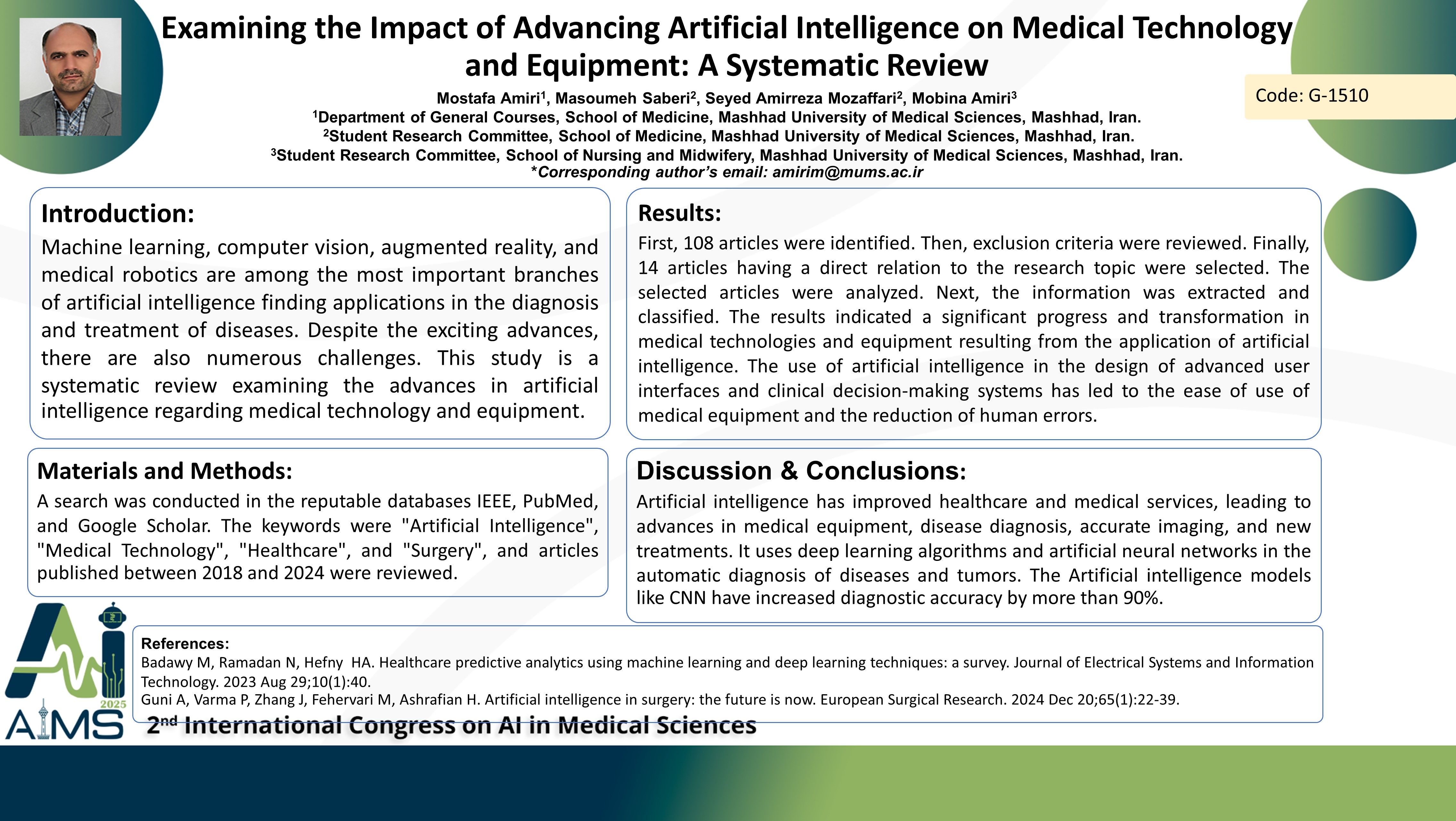Examining the Impact of Advancing Artificial Intelligence on Medical Technology and Equipment: A Systematic Review
Code: G-1510
Authors: Mostafa Amiri ℗, Masoomeh Saberi *, Seyed Amirreza Mozaffai, Mobina Amiri
Schedule: Not Scheduled!
Tag: Robotics in Surgery and Care
Download: Download Poster
Abstract:
Abstract
Background and aims: Machine learning, computer vision, augmented reality, and medical robotics are among the most essential branches of artificial intelligence, finding widespread applications in the diagnosis and treatment of diseases. Despite the exciting advances, there are also numerous challenges. This study is a systematic review examining the advances in artificial intelligence regarding medical technology and equipment. Method: A search for scientific articles was conducted in the reputable databases IEEE, PubMed, and Google Scholar. The keywords included "Artificial Intelligence", "Medical Technology", "Healthcare", and "Surgery", and articles published between 2018 and 2024 were reviewed. Results: In the initial stage, 108 articles related to the research topic were identified. Then, exclusion criteria, including lack of sufficient relevance to the study objective and non-compliance with valid scientific criteria, were reviewed. Finally, 14 articles having a direct and scientific connection to the research topic were selected. The selected articles were translated and their introduction, abstract, results, and key findings were analyzed. Then, information related to advances in artificial intelligence in the field of technology and medical equipment was extracted and classified. The results indicate significant progress and fundamental transformation in medical technologies and equipment resulting from the application of artificial intelligence. The integration of advanced Machine Learning (ML) and Deep Learning (DL) algorithms in medical systems has led to increased performance accuracy, optimization of diagnostic and therapeutic processes, and improved automated capabilities of equipment. Also, the use of artificial intelligence in the design of advanced user interfaces and clinical decision-making systems has led to the ease of use of medical equipment and the reduction of human errors. Conclusion: Artificial intelligence has played an important role in improving healthcare and medical services, leading to advances in medical equipment, disease diagnosis, more accurate imaging, and even new treatments. One of its most important applications is the use of deep learning algorithms and artificial neural networks in the automatic diagnosis of diseases and tumors. Artificial intelligence-based models such as CNN (Convolutional Neural Networks) in medical imaging, including MRI and CT scans, have increased diagnostic accuracy by more than 90%.
Keywords
Artificial Intelligence, Medical Technology and Equipment
